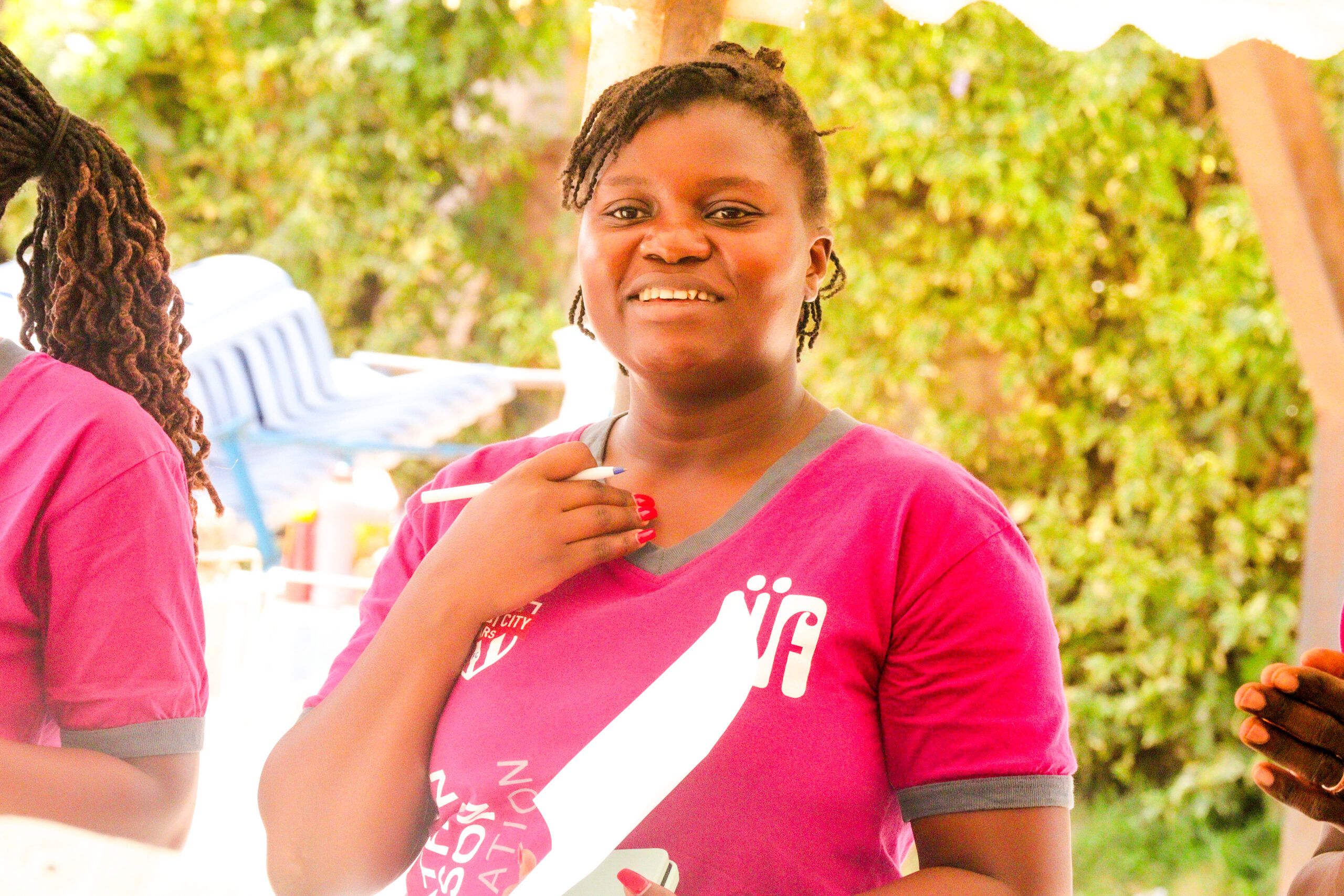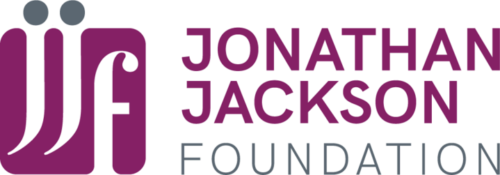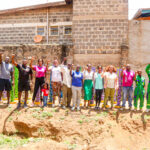
Accelerating Action: Empowering Women and Girls for a Thriving Future
- Communications Team
- March 21, 2025
- JJF News
- 0 Comments
By Diana Odhiambo, Programs Assistant – Monitoring and Evaluation, Jonathan Jackson Foundation
As we mark International Women’s Month 2025 under the theme “Accelerating Action,” I am proud to reflect on the Jonathan Jackson Foundation’s unwavering commitment to empowering women and girls through economic inclusion. In my role as Programs Assistant for Monitoring and Evaluation, I witness firsthand the transformative impact of our initiatives—and the urgent need to deepen this work. In Kenya, over 30% of the population is youth aged 18-35, yet they account for more than 70% of the unemployed. This untapped potential—a latent youth dividend—could fuel economic growth in a functioning economy, but only if we act decisively to include those too often left behind: young women.
Nowhere is this challenge more evident than in Nairobi City County, where 1 in 5 residents are unemployed youths living in informal settlements. Half of these individuals—50%—are young women, a demographic at the heart of JJF’s mission. These women and girls are not just statistics; they are the backbone of their communities, with the power to drive sustainable change if given the right opportunities.
The Barriers We Must Break
Women and girls face systemic obstacles that stifle their economic participation: limited access to capital, inadequate skills training, and a lack of financial literacy, to name a few. In Nairobi’s informal settlements, these barriers are compounded by gender-specific challenges—societal expectations, safety concerns, and unequal resource access—that keep dreams deferred and potential unrealized. At JJF, we see these not as insurmountable hurdles but as opportunities for targeted, impactful action.
Our Response: Building Pathways to Empowerment
Through initiatives like Jenga Bizna Mtaani, we are breaking down these barriers by equipping women-led groups with the tools they need to succeed: seed funding, capital goods, and comprehensive business training. To date, JJF has supported 14 women-owned enterprises, directly benefiting 259 individuals. These women are doing more than starting businesses—they’re creating jobs, lifting their families out of poverty, and inspiring others in their communities.
Take Amina, a young mother from Kibera, as an example. With seed funding from JJF, she launched a tailoring business that now employs three other women and has boosted her family’s income by 50%. Stories like hers are why I do this work—they show that economic empowerment isn’t just about numbers; it’s about dignity, resilience, and hope.
Looking Ahead: Deepening Impact in 2025
At JJF, we know that empowering women and girls goes beyond individual success—it’s about fostering independence, reshaping opportunities, and advancing gender equality. That’s why, in 2025, we’re intensifying our efforts with a clear focus on women and girls:
- Tracking Women’s Participation: As part of my M&E role, I’m leading efforts to strengthen our data collection, measuring the growth and sustainability of women-led businesses and their ripple effects on households. This evidence will guide us in scaling what works.
- Enhancing Financial Inclusion: We’re partnering with financial institutions to expand access to financial literacy training, empowering women to manage and grow their enterprises with confidence and skill.
- Understanding Gender-Specific Barriers: By weaving gender-based insights into our evaluations, we’re identifying and addressing the unique challenges women face—whether it’s market access, safety, or balancing work and family life.
These steps are not just programmatic tweaks; they’re strategic investments in systemic change, ensuring women and girls are central to the economic future of Nairobi’s informal settlements.
A Call to Action
International Women’s Month 2025 reminds us that accelerating action requires collective effort. With the resilience of the communities we serve and the steadfast support of our partners, JJF is turning this vision into reality. But we can’t do it alone. Whether through collaboration, advocacy, or amplifying the stories of women like Amina, your involvement is vital to sustaining this momentum.
Empowering women and girls isn’t just an economic strategy—it’s a commitment to a more equitable, thriving society. Together, let’s accelerate action toward a future where every young woman in Nairobi’s informal settlements can unlock her full potential.


